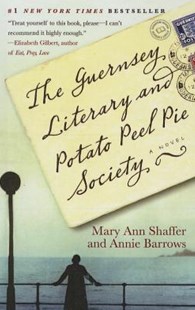Guernsey Literary Society and Potato Peel Society (2018) by Mary Shaffer and Annie Barrows.
GoodReads metadata is 291 pages, rated 4.16 by 51,596 litizens.
Genre: Chick Lit.
Verdict: More, please.
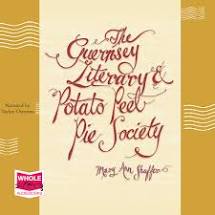
It is set out in letters among a number of correspondents and that makes it an epistolary novel. It just starts and the reader slowly begins to identify the characters as the correspondence continues and broadens to include ever more letter-writers. While that approach makes demands on the reader’s concentration to sort out who is whom, it is preferable to the didactic laborious backstories that choke the opening of too many novels or form a giant roadblock in chapter two.
In the exchange of letters some of the history of Guernsey Island is brought out. Only twelve kilometres from the Cotentin (Cherborug) Peninsula it has been English since William Conqueror said it was, accordingly it has many distinctive features that are curious though not relevant to this novel. (Distracting historical aside: in the dark days of May 1940 the French Acting Minister of War proposed a general retreat to the Cotentin Peninsula which could then be blocked off from German advance and supplied from the British Channel Islands. That was Charles de Gaulle.)
In this set up we have an author looking for the subject of her next book in 1948 who comes across a reference to a Literary Society active in Guernsey during the German Occupation of this island, which began with a bang in June 1940. She researches both the Island and Occupation in the British Library and through secondhand contacts she begins writing letters to Islanders asking them about the Society. All the while she maintains an extensive correspondence with friends, publishers, suitors, relatives, and others in a mélange of sparking bon mots. The number of her Guernsey epistlers increases as Islanders learn of her interest.
That all may sound awkward, force, or clumsy, but it works in these pages. Both parts of the title have quite simple explanations for the attentive reader.
In the early going the German Occupation of the Channel Islands had propaganda value for Berlin and ‘Softy, softly’ was the approach. German newsreel cameras recorded the gentle hand of Nazi rule on these Brits in the hope that this propaganda might sap the English will to resist, but as the war became more difficult that changed. The first and major change was food.
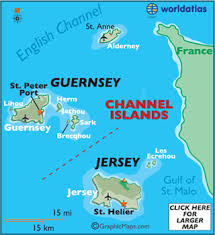
Guernsey was to be self-sufficient in all things, a no-cost operation to the larger German war machine. The occupying German force was to be fed from the Island’s larder. After they finished, then the Islanders had the remainder. That arrangement quickly came to pinch and it got worse with time. Once the hens and sows are gone…. Well they are gone and so are their progeny.
The Nazis fortified Guernsey using imported slave labour — many were Polish and Russian POWS who were worked to death as the German McKinsey managers met their KPIs (Killing Performance Indicators). At its peak the figure of 16,000 is given for the labour force on Guernsey alone. The callous murder of these slaves showed the Islanders the colours of the Nazis. The steel and concrete gun emplacements, underground bunkers, tunnels, a hospital, communication lines, beach obstacles, tramlines, and mines laid (in sea and on the beaches) were out of all proportion to either its strategic importance or any tactical defence. There were more gun emplacements than guns, and more guns than gunners, and more gunners than ammunition. More watch towers than signalmen, and so on.
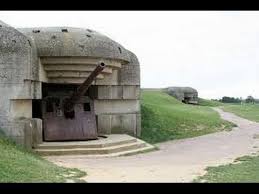
As the war went on the Nazi hand grew heavier and heavier on the Islanders themselves. Minor infractions were punished severely and the central character, Elizabeth, was deported and murdered at the Ravensbrück lager. There is much darkness in these pages but the mix with the light is well judged.
From June 1940 to May 1945 the Island was almost completely sealed off from the wider world apart from a few Red Cross letters that reported the deaths of Islanders in the British Armed Forces. These missives the Germans let through while others were destroyed. Several thousand children had been evacuated shortly before the German assault: bombing, parachutes, and then troop ships. None of the letters these children sent were delivered. No outgoing mail at all was permitted.
The blackmarket and collaboration are treated without the self-righteousness hindsight that is usually substituted for thought and humanity by the trolls.
Guernsey’s most famous resident, Victor Hugo, is mentioned not even once. Though a visitor for a few days, one Oscar Wilde, is. Though I found that reference unsatisfactory. Much is made of it, and then it is dropped and disappears from the story. Perhaps it got lost in the transition from one author to the other, which is explained in the afterword.
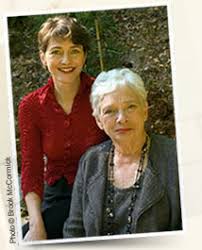
Yes, I know there is a movie (it recently screened at the Newtown Dendy) based on, derived from, related to, or inspired by the novel, and I wish the authors well with the royalties but having seen the hash scriptwriters make of novels I have no wish to see it. A scriptwriter, I was once told, never reads the novel for fear of going native but has an intern to do that, who then compiles a summary calculated to be what the scriptwriter wants to keep the job, and the result is made by and for prepubescent boys with arrested development. Academy Awards follow.
There is a literature on the Occupation for those who wish to pursue the details, and the variations for the other Channel Islands, but this novel is rooted in the lives of members of the Society and their fellows. There is a considerable bibliography on the British Library web site.
There are also a number of television documentaries including:
Enemy at the Door (1978-1980) – twenty-six part television series. I have a vague recollection of having seen some of these episodes but nothing remains in the memory palace. Check You Tube.
The Channel Islands at War (1981) – a three-part film documentary narrated by John Nettles when he was starring in Bergerac (1981+) set on Jersey. Those two experiences led him to write Jewels and Jackboots: Hitler’s British Isles, the German Occupation of the Channel Islands 1940-1945 (2012).
Island at War (2004) – six part series on the telly.
There is a considerable bibliography on the British Library web site.

